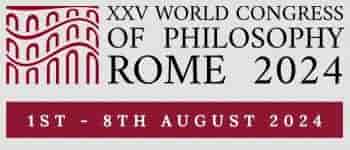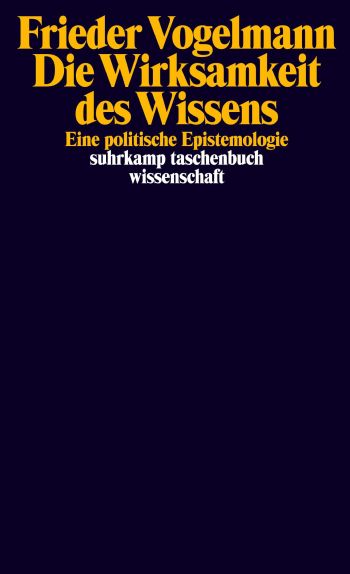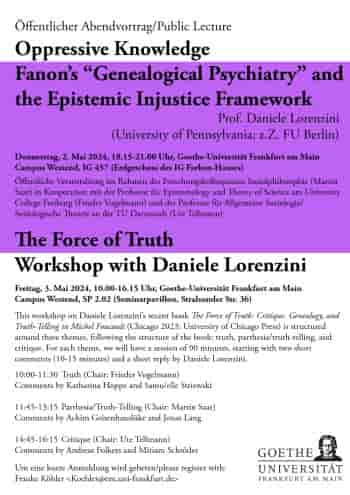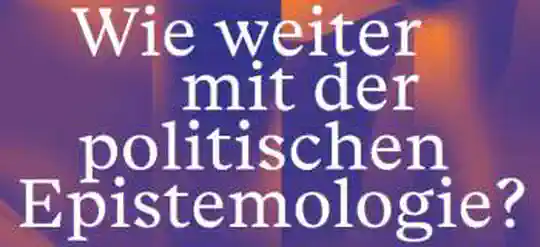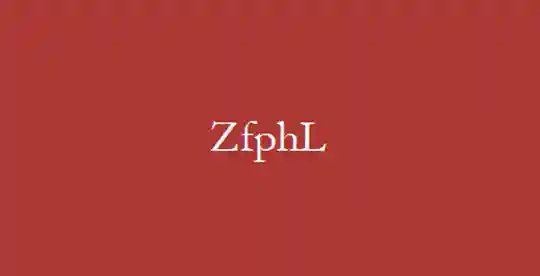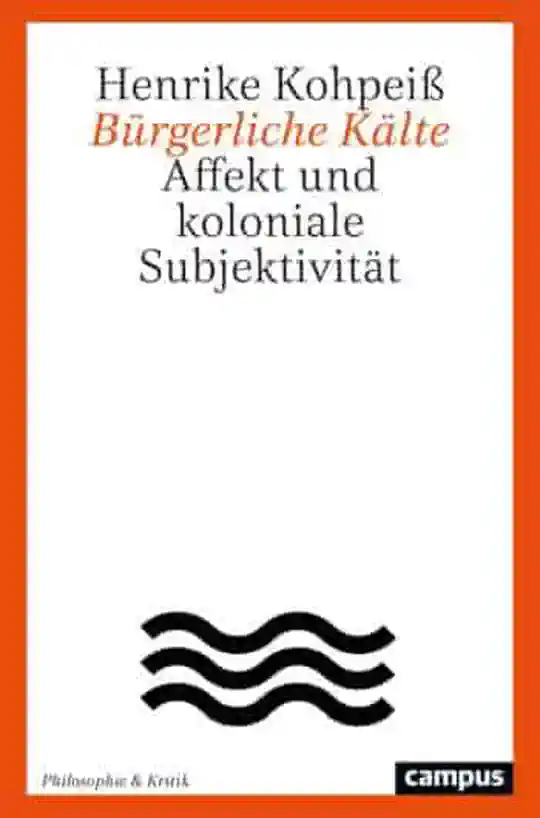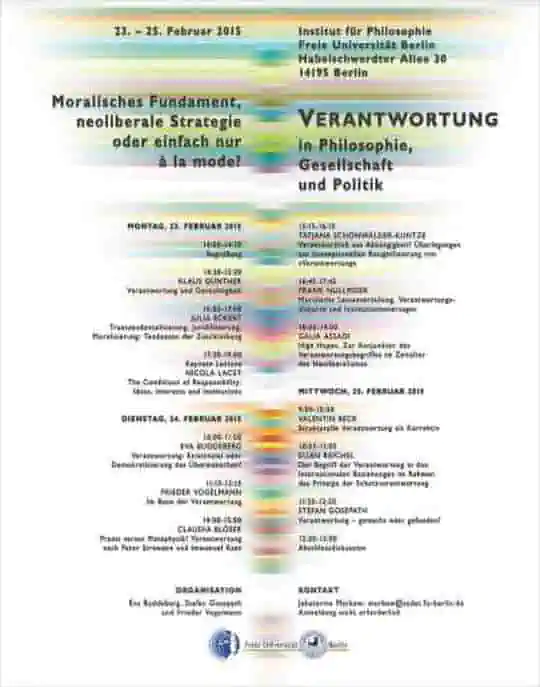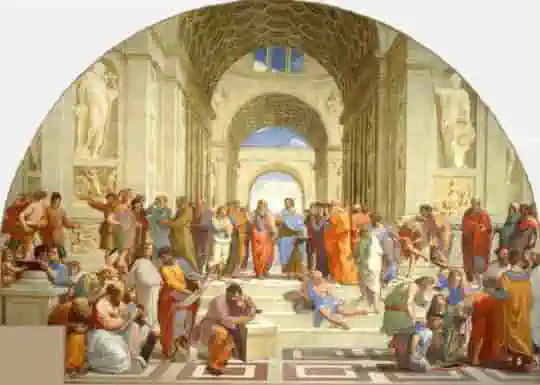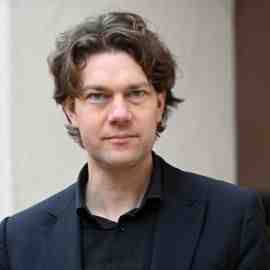
Prof. Dr. Frieder Vogelmann
Professor for Epistemology & Theory of Science
University College Freiburg
University of Freiburg
Biography
I am professor for epistemology & theory of science at the University College Freiburg and the Faculty of Humanities of the University of Freiburg.
In my research, I focus on political epistemology, an emerging field of research in which I pursue the dual insight of early Frankfurt School Critical Theory that epistemology requires social theory just as social theory requires epistemology. I am developing this insight in dialogue with analytic, continental and feminist epistemology on the one hand, and (French) political and social theory/philosophy on the other hand. My most recent books on political epistemology (both in German) are The Effectiveness of Knowledge. A Political Epistemology (2022) and Umkämpfte Wissenschaften – zwischen Idealisierung und Verachtung (2023).
My older research projects – on alternative governmentalities, on the concept of responsibility, on the concept of critique and on Michel Foucault’s philosophical method – have a common methodological core, best described as a historical-critical conceptual analysis. Following Ludwig Wittgenstein and Michel Foucault, I take the meaning of concepts to be established by their use in our social practices. Yet these practices must have a history emerging from the social struggles in which they partake.
You can find further information in my CV or on my Academia.edu profile.
Interests
- Political Epistemology
- Critical Theory
- Social and Political Philosophy
- Michel Foucault
- Responsibility
- Contemporary French Philosophy
Education
Habilitation and Award of the venia legendi in Philosophy, 2020
University Frankfurt/Main
PhD in Philosophy, 2013
University Frankfurt/Main
MA in Philosophy, Mathematics and Cognitive Science, 2009
University of Freiburg im Breisgau
Academic Appointments
Professor for Epistemology & Theory of Science
University College Freiburg, Albert-Ludwigs-University FreiburgDecember 2021 – Present Freiburg im Breisgau
Acting Chair for Epistemology & Theory of Science
University College Freiburg, Albert-Ludwigs-University FreiburgOctober 2021 – November 2021 Freiburg im Breisgau
Interim Professor for Sociology with Focus on the History and Systematics of Social Sciences
Goethe UniversityApril 2020 – September 2021 Frankfurt am Main
Visiting Professor for Critical Social Theory
Goethe UniversityApril 2019 – March 2020 Frankfurt am Main
Assistant Professor for Political Theory
SOCIUM/University of BremenApril 2018 – February 2020 Bremen
Assistant Professor for Political Theory
InIIS/University of BremenOctober 2012 – March 2018 Bremen
Recent Publications
Review of Paul Feyerabend (2023): Historische Wurzeln moderner Probleme. Vorlesung an der ETH Zürich 1985. Berlin: Suhrkamp. Published in Frankfurter Allgemeine Zeitung, March 12, 2024.
Upcoming Talks
Recent Posts
Projects
.js-id-active_projectTeaching
In the summer term 2024, I will teach the following courses:
Notes on Term Papers
Scientific writing is not an easy task. To help you with the writing part and to give you some idea how to find a good research question for your term papers, I have assembled some tips in the Hausarbeiten-Survival Guide. (Note that this is a document in progress and is not quite as developed as its German counterpart.)
Contact
- frieder_{dot}_vogelmann_{at}_ucf_{dot}uni_{minus}_freiburg.de
- +49 761 203 67628
-
University College Freiburg
Bertoldstr. 17, Freiburg, D-79098 - Office Hour: Wednesdays 16–17h
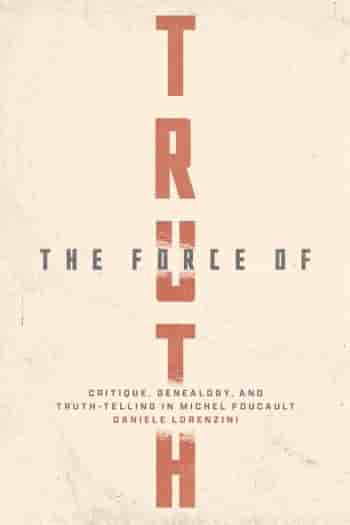

![Situated, Not Located: The Institute for Social Research as Impossible Place for Critical Theory [in German]](/public/publication/2023_10_ifs_100/featured_westend_cover.jpg)
![Contested Sciences -- Between Idealisation and Contempt [in German]](/public/media/Vogelmann_reclam_uw_cover.jpg)
